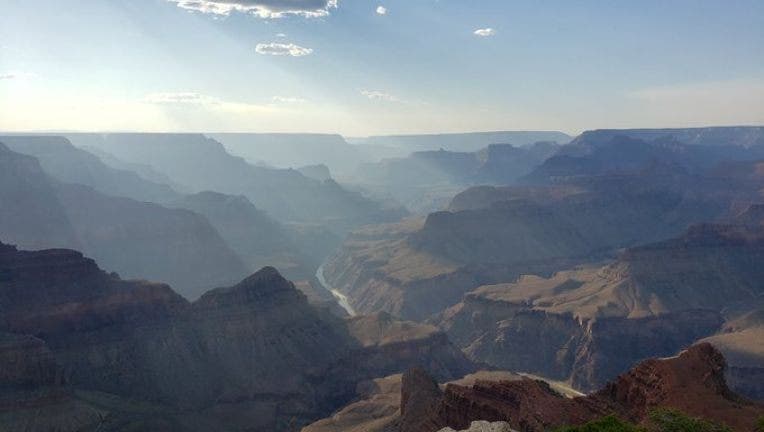Environmentalists lose appeal to halt Arizona uranium mine

(National Park Service)
FLAGSTAFF, Ariz. (AP) - A federal appeals court on Feb. 22 ruled against environmental groups and an Arizona tribe in their bid to keep a uranium mine south of the Grand Canyon from operating.
The Pinyon Plain Mine, formerly known as the Canyon Mine, lies within a roughly 1,562-square-mile (4,045-square-kilometer) area that was placed off-limits to new mining claims in the Obama administration. But it doesn’t keep Energy Fuels Resources from developing its claims on U.S. Forest Service land because they were grandfathered in.
Three environmental groups and the Havasupai Tribe sued the Forest Service, arguing the agency should not have ignored costs that cannot be recovered when determining whether Pinyon Plain could be profitable.
A three-judge panel of the 9th U.S. Circuit Court of Appeals disagreed, upholding a lower court’s decision.
"It is a basic principle of economics that sunk costs should be ignored when making a rational decision about whether to make further expenditures," Judge Jay S. Bybee wrote for the court.
Energy Fuels spokesman Curtis Moore said the company was pleased with the decision.
"It was a pretty definitive ruling," he said.
A spokesperson for the Kaibab National Forest did not immediately respond to a request for comment late Tuesday. The Forest Service determined in 2012 that Energy Fuels had a sufficient quantity and quality of uranium to make a profit of around $29 million.
The lawsuit filed in 2013 challenged that analysis. The case has been before the 9th Circuit before when the court revived a single claim from the lawsuit in 2018 and sent it back to the U.S. District Court in Arizona for a decision on the merits.
The plaintiffs could ask for a rehearing before the full 9th Circuit. Taylor McKinnon of the Center for Biological Diversity, one of the environmental groups that sued, said the groups are evaluating their next step.
"This ruling doesn’t diminish our concern about the mine’s potential to permanently damage Grand Canyon’s aquifers and springs," he said.
The Obama administration implemented the ban on new mining claims outside the boundaries of Grand Canyon National Park in 2012, partly out of concern that new mining operations could spoil the Colorado River that runs through the Grand Canyon. The ban expires in 2032 but legislation in Congress seeks to make it permanent. No company is actively mining uranium in Arizona.
Travis Bruner, conservation director for another plaintiff, the Grand Canyon Trust, said the court’s decision Tuesday underlines the urgency in protecting public land from the risk of groundwater contamination.
A U.S. Geological Survey study released last year found that most springs and wells in the vast region of northern Arizona known for its high-grade uranium ore met federal drinking water standards despite decades of uranium mining. Among the exceptions were several sites downslope from an abandoned uranium mine within Grand Canyon National Park.
The study was part of an effort to better understand the complex geology and hydrology of the region.
Meanwhile, the Pinyon Plain Mine near the Grand Canyon’s South Rim entrance remains on standby as Energy Fuels waits for uranium prices to rebound. Moore said prices went up in 2021 but have been relatively flat lately.
The U.S. imports far more uranium — a mineral essential for nuclear power — than it produces domestically, including from Canada, Kazakhstan, Australia and Russia. The latest list of critical minerals in the U.S., scheduled to be published Thursday in the federal register, no longer includes uranium. The Interior Department regularly reviews the list.
More Arizona headlines
- Environmentalists lose bid to halt uranium mine near Grand Canyon
- 'Turf wars': Paradise Valley neighborhood HOA takes resident to court over artificial grass
- Megadrought: American West's dry spell worsens to levels not seen in over a millennia
For the latest local news, download the FOX 10 News app.
Tune in to FOX 10 Phoenix for the latest news:

